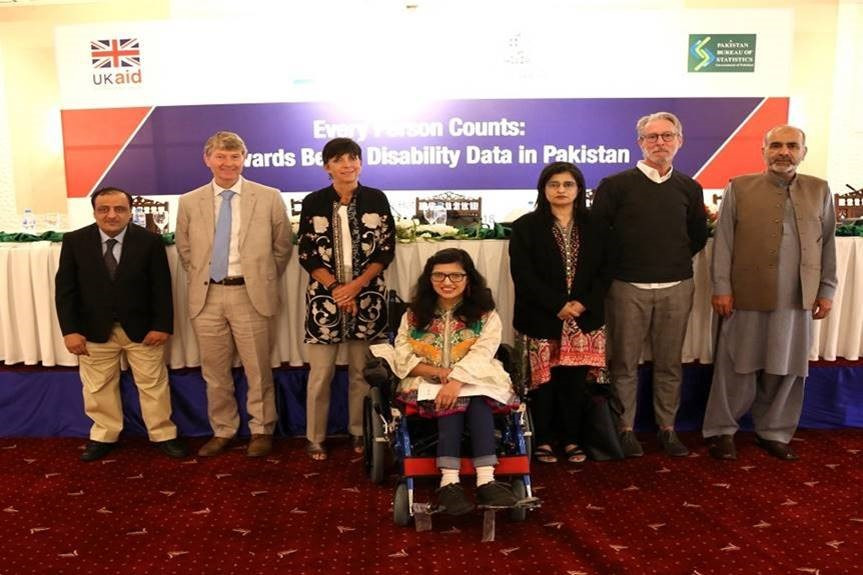Data for Better Lives

After eight and a half years as Chief Statistician in the Department for International Development (DFID) and now the Foreign, Commonwealth and Development Office (FCDO), I will be moving on at the end of July to make way for new people coming through. It has been a period of considerable change, both for the UK and in the world of data and statistics.
I joined DFID just as the Prime Minister, David Cameron, was finalising the report of the High Level Panel he co-chaired on the Post 2015 Development Agenda. This highly influential report shaped the 2030 Agenda, the landmark agreement on the Global Goals for Sustainable Development. As it turned out, four themes of the Panel’s report were to frame my time as Chief Statistician:
Sustainable
The 2030 Agenda brought together the separate UN tracks for International Development (Millennium Declaration) and Sustainable Development (Rio+20), setting a new universal agenda that applies equally to the Global North and South. The big statistical challenge was how to measure progress. I was proud to be part of the UK delegation at the UN Statistical Commission that agreed on the Sustainable Development Goal (SDG) Indicators.
These indicators play a vital role in monitoring progress towards the real-world outcome outcomes the UK seeks to deliver, as a force for good in the world. The 2021 SDG progress report shows how the coronavirus (COVID-19) pandemic has been a setback for sustainable development everywhere.
Inclusive
The Panel made a rallying cry to Leave No One Behind. This is another big measurement challenge – to look beyond statistical averages, to put the spotlight on the circumstances of the world’s poorest and most vulnerable and make them visible. COVID-19 has highlighted just how important it is to have timely, inclusive data to inform targeted action and save lives. The most fundamental, inclusive data that policy-makers need comes from the population census and I have seen some wonderful examples of UK support, for example, in Malawi (PDF 4.4MB) and Kenya.
One of the very first commitments of the newly formed FCDO was to join the Office for National Statistics (ONS) by signing up to the Inclusive Data Charter (IDC). FCDO now has the opportunity to work up a really ambitious IDC Action Plan to put the UK at the forefront in championing responsible, inclusive data.
Radical
The Panel called for a data revolution for sustainable development. Traditional datasets produced by national statistical systems provide the foundational information needed for good policy-making. FCDO has been combining these foundational datasets with data from non-traditional datasets– see for example our successful GRID3 and Trust Fund for Statistical Capacity Building (TFSCB) programmes. We are also building up our capability in data science and with ONS we have established a Data Science Hub which is helping low and middle income countries to apply data science tools, methods and practices in decision making.
As we get better at exploiting the power of data as a force for good, there is growing awareness that others are exploiting this power to do harm. Data governance is now a hot topic. The World Bank’s World Development Report 2021 Data for Better Lives makes a compelling case for the need to put in place both enablers to facilitate access to and reuse of data and safeguards, to prevent the misuse of data.
Ambitious
According to an African proverb, if you want to go fast, go alone. If you want to go far, go together. The Panel recommended establishing a Global Partnership for Development Data and I played a part in establishing the Global Partnership for Sustainable Development Data. Other partnerships that have loomed large in my work include PARIS21 (Partnership for Statistics in the 21st Century), and FCDO’s collaboration with ONS which has established thriving partnerships with the Ghana Statistical Service , the Kenya National Bureau of Statistics, the National Institute of Statistics of Rwanda and the UN Economic Commission for Africa.
FCDO has also sponsored a new Data for Development community of practice at the OECD DAC. Working with international partners takes time and effort. I very much hope that these partnerships continue to flourish. Not as an end in their own right, but as the means to delivering the sustainable development goals in the Decade of Action that is now underway.
A stand-out feature of the last few years has been seeing the power of data to change people’s lives for the better. It has also been an immense privilege to work alongside an exceptionally talented and committed set of colleagues in FCDO’s statistics cadre and across the GSS. Making the most of this talent will be the key to achieving the aspirations to make Her Majesty’s Government truly data driven.

If you’d like to find out more about FCDO’s statistics function, or the topics covered in this blog, please contact Paula McLeod paula.mcleod@fcdo.gov.uk (Head of Profession for Statistics) and Rachael Beaven rachael.beaven@fcdo.gov.uk (Data for Development Team Leader)
